Hurricane Debby aftermath: Drone video captures Florida woman's rescue
Manatee County officials release video of woman being pulled from SUV stuck in rising floodwaters. (Credit: Manatee County Gov./TMX)
With Hurricane Francine threatening the Gulf Coast, it is a reminder to be prepared in case of a natural disaster.
Francine is forecast to make landfall along the Louisiana coast early Thursday, leaving residents little time to prepare. But there are some recommended provisions that can help alleviate a family's concerns in the event of a prolonged power outage in the aftermath of a storm.
Read on for five items that FEMA and other organizations suggest people stock up on before a storm approaches.
TIPS FOR SURVIVING AN EARTHQUAKE AND PREPARING IN ADVANCE
1. Water
Every home should have at least one gallon of water, per person, per day on hand during an emergency, FEMA and the American Red Cross' online pamphlets say.
"Consider storing at least a two-week supply of water for each member of your family. If you are unable to store this quantity, store as much as you can," FEMA and the Red Cross advise.
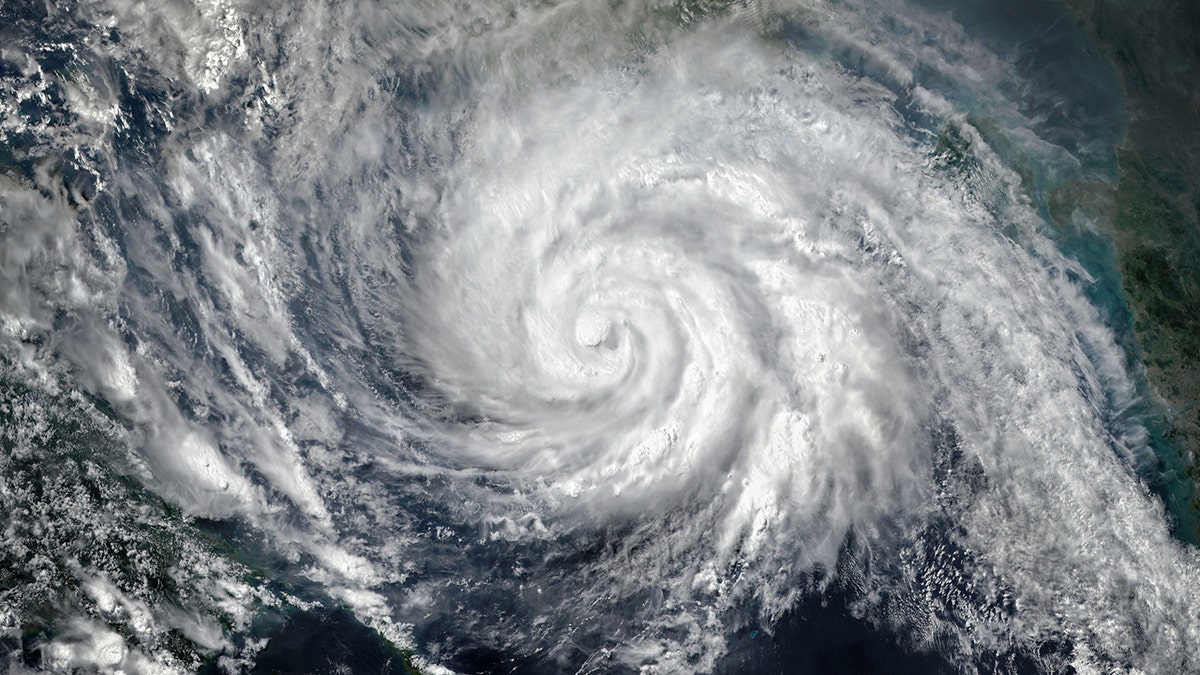
With hurricane season at its peak, it is important to be prepared in case disaster strikes. (iStock)
Under normal circumstances, a person needs a half gallon of water per day, it said, but nursing mothers, children and those living in hot environments need even more.
"To prepare the safest and most reliable emergency supply of water, it is recommended that you purchase commercially bottled water. Keep bottled water in its original container, and do not open it until you need to use it," FEMA and the Red Cross said.
'IS IT SAFE TO DRINK TAP WATER?': ASK A DOCTOR
When a water supply runs low, do not ration water, the pamphlet said.
"Drink the amount you need today and try to find more for tomorrow," it said.
Hidden sources of water in a person's home include "your hot water tank, pipes and ice cubes."
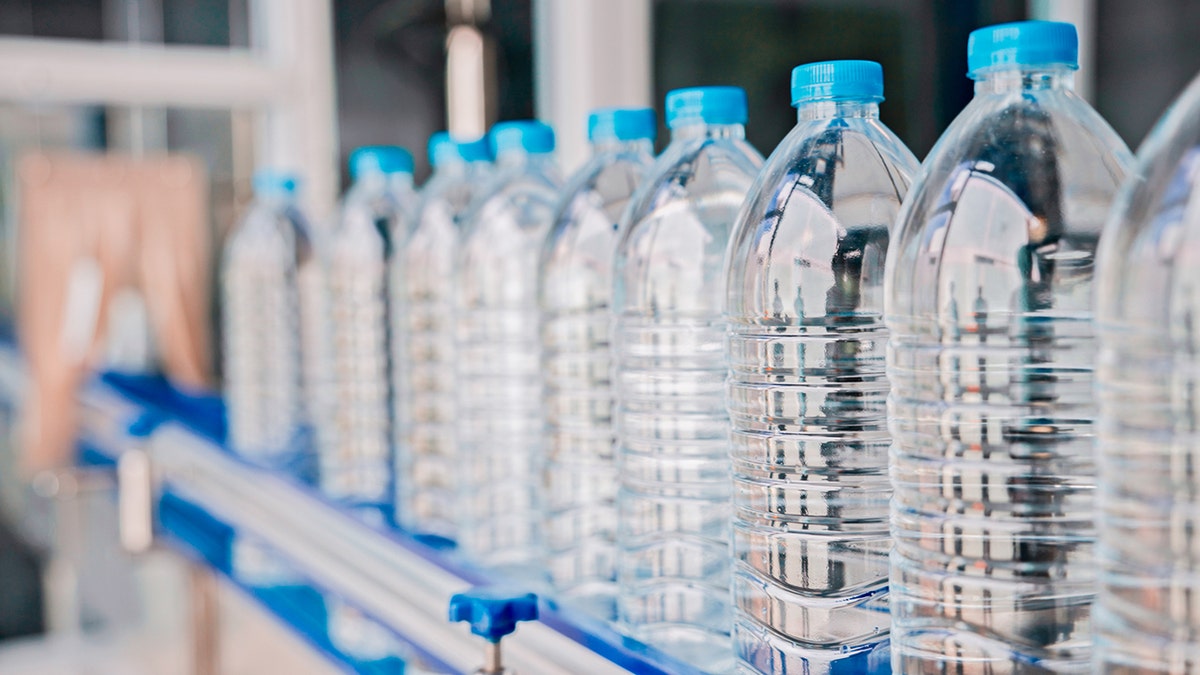
Never ration water, FEMA and the American Red Cross said. (iStock)
"You should not use water from toilet flush tanks or bowls, radiators, waterbeds or swimming pools/spas," FEMA and the American Red Cross advise.
2. Canned foods
Canned foods are especially useful as they often have a long shelf life and can typically be eaten straight from the can without cooking, FEMA and the American Red Cross said.
15 EMERGENCY PREPAREDNESS SUPPLIES EVERYONE SHOULD CONSIDER GETTING
"Canned food can be eaten right out of the can. If you heat it in the can, be sure to open the can and remove the label before heating," FEMA and the Red Cross said.
Do not eat food a can that is dented or swelling. Instead, throw these products away, the organizations recommend.
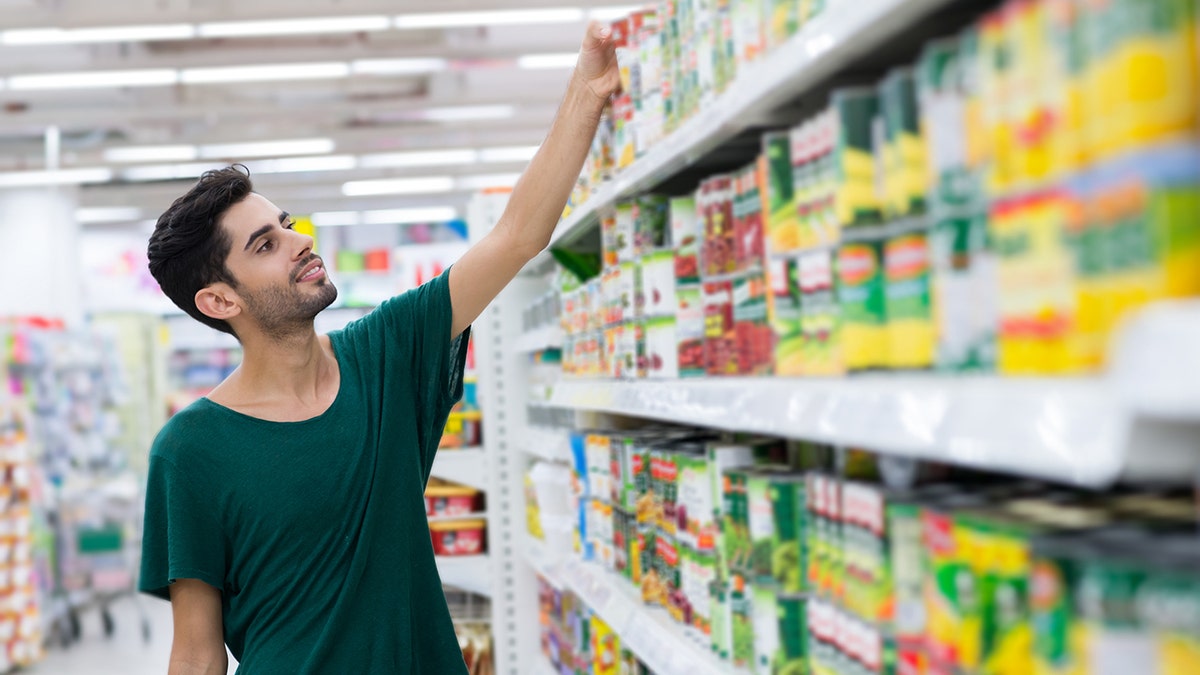
Most canned foods can be eaten straight from the can without cooking. (iStock)
At minimum, a person should seek to have a three-day supply of food at home in case of an emergency, FEMA and the Red Cross said.
AS HUNGER NUMBERS INCREASE, FOOD PANTRIES IN AMERICA MORE IMPORTANT THAN EVER
Also, it's advised to have a manual can opener and disposable utensils on hand.
3. Shelf-stable protein options
Protein options that do not require refrigeration are another great thing to have on hand while a storm is threatening to strike.
These include peanut butter (and other nut butters), canned tuna, canned turkey, canned chicken, nuts and jerky, according to the website for the Houston Food Bank Nutrition Education Department.
For more Lifestyle articles, visit www.foxnews.com/lifestyle
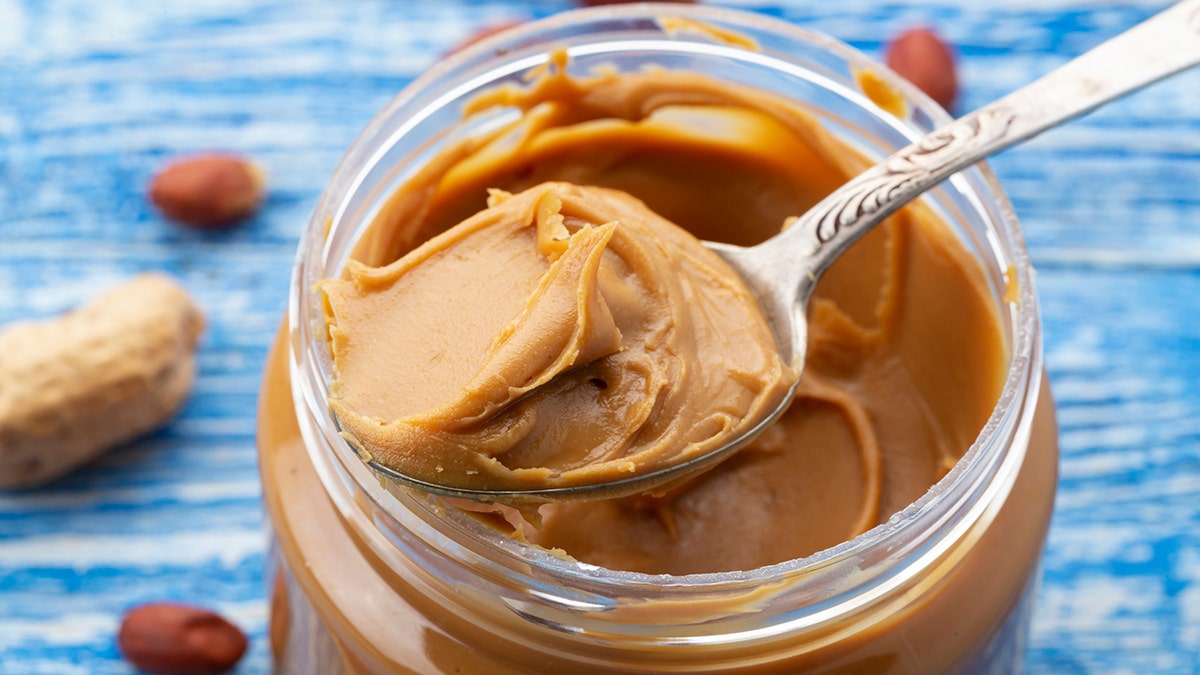
Peanut butter and other nut butters are good sources of protein to have on hand as you prepare for a hurricane. (iStock)
Protein helps a person feel full and reduces a person's appetite – all while boosting one's metabolism, according to the website Healthline.
CLICK HERE TO SIGN UP FOR OUR LIFESTYLE NEWSLETTER
"As for what types of food to include, take into consideration dietary restrictions, allergies and food preferences," Stephanie Fox, a spokeswoman for the Red Cross, told Fox News Digital.
4. Shelf-stable dairy (or dairy alternatives)
Rather than go out and buy gallons of milk before a storm, instead, stock up on shelf-stable varieties, the Houston Food Bank said. Both dairy milk and milk alternatives (including almond, rice and soy) have shelf-stable versions.
Shelf-stable milk is pasteurized and packaged differently than other types of milk, according to the website for Horizon Organic, a milk producer.
"Shelf-stable milks are safe to store at room temperature, so you can keep them in the pantry."
"With UHT pasteurization and airtight, no-light packaging, our shelf-stable milks are safe to store at room temperature, so you can keep them in the pantry," Horizon Organic said. "UHT pasteurization" is a process that uses very high temperatures to kill bacteria, it said.
Still, just like typical milk, these products do expire and should be consumed before the best-by date, it said.
5. Food for special diets
Baby food, powdered formula and special dietary needs for the elderly are important to consider when preparing for a weather diaster, Fox said.
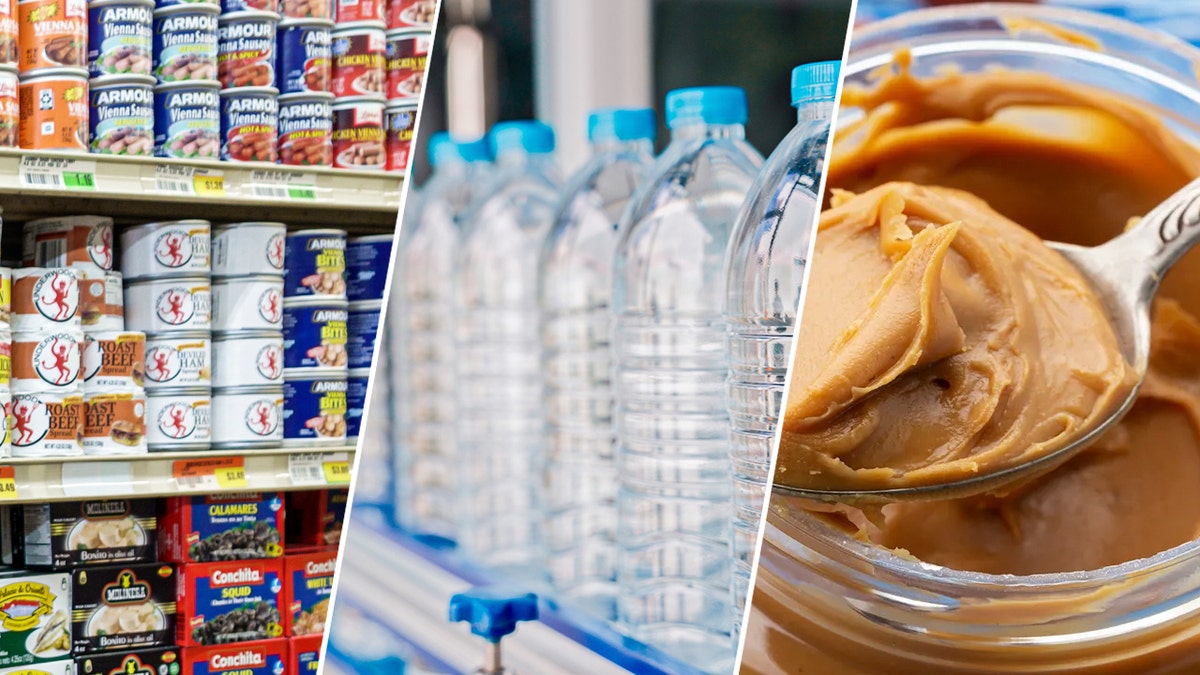
Canned foods, bottled water and peanut butter are some items a person should keep on hand in case of a hurricane or other natural disaster. (Jeffrey Greenberg/Universal Images Group via Getty Images; iStock)
It is also good to have food on hand that a person enjoys eating.
"Familiar foods are important. They lift morale and give a feeling of security in times of stress," FEMA and the Red Cross said. "Try to include foods that they will enjoy and that are also high in calories and nutrition. Foods that require no refrigeration, water, special preparation or cooking are best."
CLICK HERE TO GET THE FOX NEWS APP
Fox News Digital reached out to FEMA for comment.

